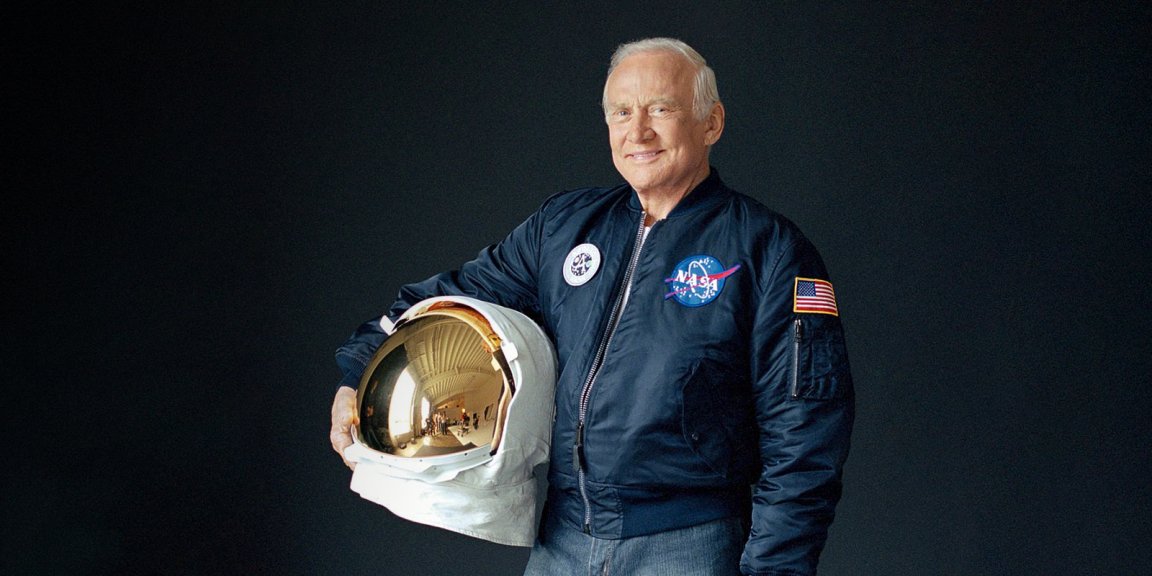
Chasing the Unknown
Buzz Aldrin is an acclaimed astronaut, engineer, and (of course) the second human being to ever walk on the Moon. Over the years, he has inspired entire generations to look beyond the bounds of Earth and pursue the unknown. As Aldrin previously noted, “human beings are meant to be inquisitive. We’re meant to be achievers.” And to this end, Aldrin has dedicated his life to advancing humanity through discovery, creating explorers and scientists alike in the process.
Most recently, Aldrin helped to create a virtual reality (VR) experience that allows people to ‘travel’ to Mars. As one of the few individuals who has ever had the privilege of stepping onto an astronomical body besides Earth, Aldrin is able to expertly assist in conveying the experience of space travel to the everyday individual and, in so doing, take people (virtually) farther than they have ever gone before.
Now is the time to start thinking seriously about what life on Mars might look like in the future.
In a recent interview with Futurism, Aldrin weighed in on just how important it is for us, as humans, to take this next step in journeying into the final frontier, “One of the things that makes space exploration so exciting is that the possibilities are endless. Mars is the next actionable step for us – we have never been closer to knowing and exploring another planet. Plus, I believe that Mars has realistic potential for colonization.”
Aldrin continued by noting that, in order to make humanity’s future on Mars a reality, we will need to start garnering interest and making plans for tomorrow today: “Now is the time to start thinking seriously about what life on Mars might look like in the future. I believe we can have the first Human Martians at Mars by 2040.”
A Unified Quest
Obviously, a virtual journey to Mars isn’t exactly the same as a real Martian excursion; however, such technologies can, in some small way, help bring people to the stars who otherwise might not ever have the opportunity. In this respect, the VR experience is truly valuable. As Aldrin notes, “We have a long way to go before trips to space are widely affordable for everyone. Luckily AR/VR technology is here now.”
Aldrin continued by asserting that, more than just showing people what the voyage to Mars will be like, this type of experience is an integral part of encouraging people to get excited about science and exploration. And in today’s society, where denialism and sensationalism dominate many conversations, a genuine interest in science is more crucial than ever. Aldrin believes that exploring the vast recesses of space can help in this regard because, as he asserts, “space travel is a great unifier–it captures our collective imagination, encourages our curiosity, and inspires our creativity.”
It is in our nature to explore. We, as a species, are curious.
To this end, Aldrin thinks that it is through these small pushes in the right direction that humans will finally make it to other worlds. Because we are, at the end of the day, wanderers: “It is in our nature to explore. We, as a species, are curious and want to see what’s over the next hill, see how fast we can go. It was only 66 years from the point that the Wright brothers flew to us flying rockets to the Moon.”
If this VR voyage sounds like something that would interest you, Aldrin and Terry Virts, the former commander of the ISS, are teaming up with Omaze, a donation-based experience platform, to offer one winner (and a friend) a chance to celebrate the Apollo 11 anniversary as VIPs at the ShareSpace gala. You will get to hang out with the pair and experience Aldrin’s virtual Mars experience. Best of all, this effort supports The ShareSpace Foundation, which is a nonprofit dedicated to getting kids involved with STEM.
In the words of the Carl Sagan, “Human beings are a curious, inquisitive, exploratory species. I think that has been the secret of our success as a species.” Aldrin embodies this exploratory quest and, through AR and VR, he wants to spark that curiosity and need to explore in all.
Of course, no one is positive when the first human footsteps will leave their mark on the Martian surface, but the quest to get us there is how we will continue to advance as a species….and it isn’t just astronauts and rocket scientists who can (and should) participate in this great journey. Whether virtually or through other means of education and involvement, it is now possible for us all to engage our minds, hearts, and exploratory imaginations. It’s a race we must run together.